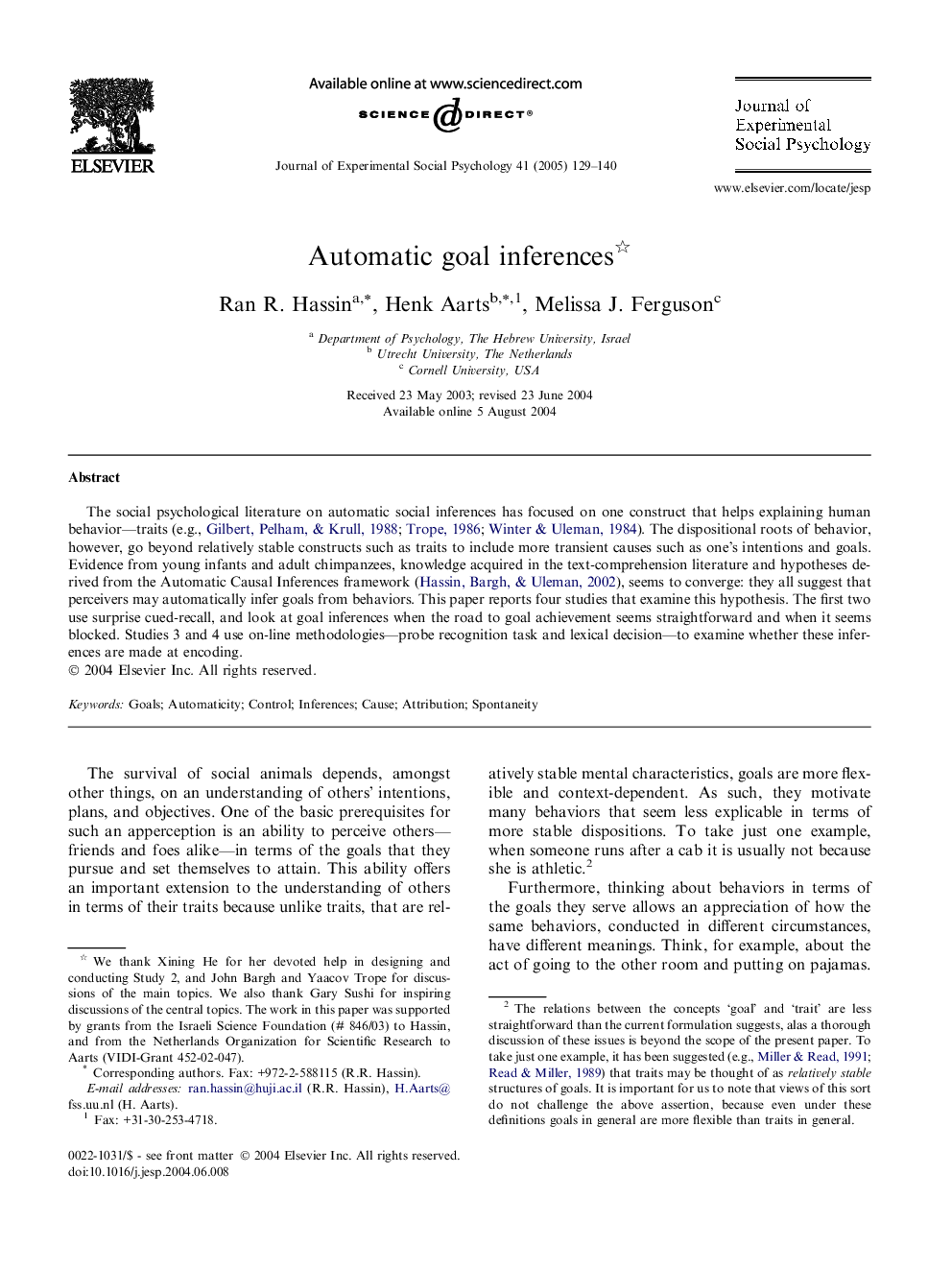| Article ID | Journal | Published Year | Pages | File Type |
|---|---|---|---|---|
| 10468868 | Journal of Experimental Social Psychology | 2005 | 12 Pages |
Abstract
The social psychological literature on automatic social inferences has focused on one construct that helps explaining human behavior-traits (e.g., Gilbert, Pelham, & Krull, 1988; Trope, 1986; Winter & Uleman, 1984). The dispositional roots of behavior, however, go beyond relatively stable constructs such as traits to include more transient causes such as one's intentions and goals. Evidence from young infants and adult chimpanzees, knowledge acquired in the text-comprehension literature and hypotheses derived from the Automatic Causal Inferences framework (Hassin, Bargh, & Uleman, 2002), seems to converge: they all suggest that perceivers may automatically infer goals from behaviors. This paper reports four studies that examine this hypothesis. The first two use surprise cued-recall, and look at goal inferences when the road to goal achievement seems straightforward and when it seems blocked. Studies 3 and 4 use on-line methodologies-probe recognition task and lexical decision-to examine whether these inferences are made at encoding.
Related Topics
Life Sciences
Neuroscience
Behavioral Neuroscience
Authors
Ran R. Hassin, Henk Aarts, Melissa J. Ferguson,
